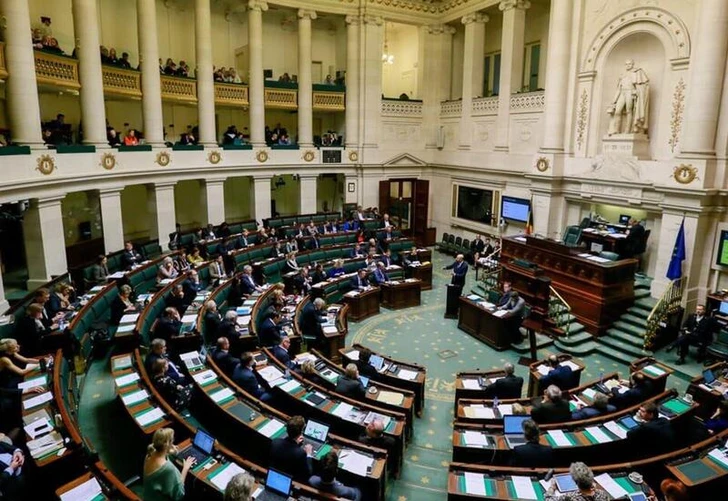BAKU, July 22 — The Azerbaijani Parliament has strongly condemned a recently adopted resolution by Belgium’s House of Representatives, describing it as a “one-sided, outdated, and politically motivated attack” against Azerbaijan’s sovereignty and legal actions in Karabakh.
The Belgian resolution, adopted unanimously, refers to an alleged “military attack on Karabakh,” “violations of international law,” and calls for the release of former Karabakh leaders and “all Armenian prisoners.” Azerbaijani lawmakers argue the resolution is filled with misrepresentations and ignores the geopolitical realities of the South Caucasus.
In response, Azerbaijan’s Milli Majlis (Parliament) issued a formal protest, rejecting the accusations and defending the country’s September 2023 anti-terrorist operation as legal and in full compliance with international law. The operation, the statement says, targeted only illegal Armenian armed groups operating within Azerbaijan’s internationally recognized territory. No civilians were harmed and no cultural or religious sites were damaged.
“The authors of this resolution disregard international law, justice, and basic parliamentary responsibility,” the statement read. “This is an orchestrated effort based on misinformation and outdated political narratives.”
Speaking to Media.Az, Azerbaijani MP Azer Allahveranov said Belgium and some other European parliaments appear to be recycling anti-Azerbaijani rhetoric ahead of domestic elections or political events.
“Look at the texts of similar resolutions passed by Belgium and the Netherlands — they’re nearly identical,” said Allahveranov. “These aren’t spontaneous actions. They’re written from the same playbook, often driven by certain political forces in France. These narratives are pushed in both the European Parliament and national legislatures for electoral gain.”
According to Allahveranov, European political circles that were historically funded by Armenian lobbying efforts during the 30-year occupation of Azerbaijani territory are now trying to maintain relevance.
“These networks have vested financial and political interests in sustaining the Armenian narrative,” he said. “They have become dependent on it.”
The MP also criticized the resolution’s references to UNESCO and claims of “Armenian persecution.”
“For 30 years, UNESCO ignored our calls to investigate the destruction of Azerbaijan’s cultural heritage in the occupied territories. Now, suddenly, it finds its voice — but only to echo Armenian grievances,” he added.
On the issue of “prisoners,” Allahveranov clarified that the vast majority of Armenian detainees captured during the 44-day war in 2020 were returned shortly after the conflict. Those currently facing trial, he noted, were involved in acts of sabotage or terrorism after the ceasefire, targeting civilians and infrastructure — and therefore cannot be considered lawful prisoners of war.
“The separatist leaders now on trial are guilty of managing an illegal regime for decades,” he stated. “Even they are beginning to confess to their crimes in court.”
Despite the resolution’s rhetoric, Azerbaijan remains a key energy partner for Europe, currently supplying natural gas to 10 European countries — eight of which are EU members.
“This resolution won’t change facts on the ground,” said Allahveranov. “But it does reveal which political actors continue to treat Azerbaijan’s sovereignty as negotiable — and who still plays politics with outdated, foreign-influenced scripts.”


